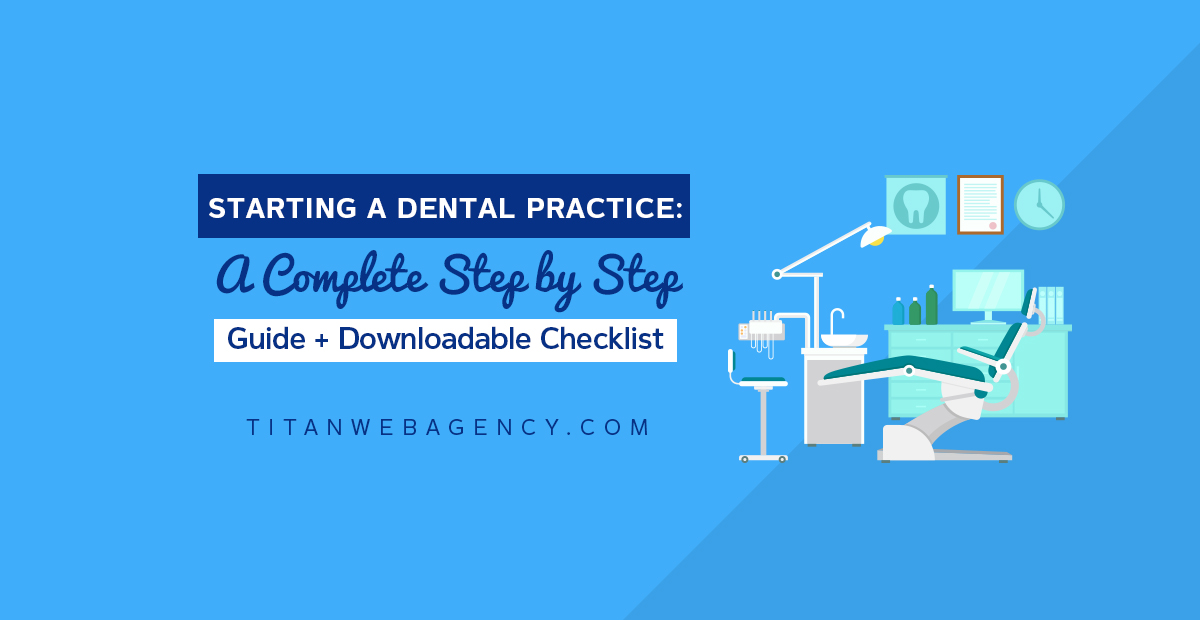Starting a Dental Practice: A Complete Step-by-Step Guide + Downloadable Checklist

This post was originally published on March 24, 2021, and updated on April 21, 2025.
Key Takeaways
- Starting costs: $200,000–$500,000, plus 6 months of operating expenses
- Timeline: 10–12 months from planning to opening
- Average owner income: $88,000 more annually than associates
- Critical early decisions: Location research, business structure, and securing financing before signing leases
- Success factors: Strong business plan, experienced consulting team, early marketing investment (SEO takes 6–12 months in most markets to show measurable results - sometimes more.)
Setting up a new dental practice involves combining the challenges of starting a business with additional dentistry-related challenges, which can be overwhelming. A lot of work goes into establishing any business, from deciding if a partner is right for you to how many employees you will hire to how you will market your dental practice. This post will cover all these and more to help you set yourself up for success.
Our free download, Opening a Dental Practice Checklist, as outlined in this post, can help things run as smoothly as possible while opening up your new practice.
When Should You Start Your Own Dental Practice?
Starting a dental practice is a big step, and it's not something to be undertaken lightly. Before moving forward, consider whether starting a dental practice makes sense for you. There are many factors to remember, including the personal and financial impact that being a business owner will have on your life. Here are some important considerations to keep in mind.
What Are the Benefits of Owning A Dental Practice?
A recent survey conducted by DentalPost analyzed over 13,000 dentists across the country to compare salaries, working hours, and job satisfaction among dentists in different positions and levels of experience. The survey findings show minimal disparity in weekly working hours between practice owners and employees, with most individuals working 31-40 hours per week. However, practice owners are more inclined to work over 40 hours weekly, 19% compared to 14% of associate dentists.
According to the 2023-2024 DentalPost Salary Survey, dental practice owners earn an average of $88,000 more per year than associate dentists and are more likely to receive salary increases. Even among early-career dentists with less than 5 years of experience, practice owners earn significantly more, with owners averaging $212,000 annually compared to $139,000 for associates.
.png?width=1200&height=628&name=Graphic%20(1).png)
Dentists who own a private practice are approximately twice as likely as dental employees to enjoy a range of benefits such as retirement plans, health insurance, tuition reimbursement for continuing education, coverage for attending dental conferences, and paid time off for vacation and holidays. These benefits not only support your well-being during your career but also play a critical role in retirement planning for dentists, especially when it comes time to sell your practice and transition out of clinical work.
Finally, practice owners exhibit greater job security than associates, with the majority remaining at the same practice for over 15 years. Conversely, 85% of associate dentists switch to new employers before completing 7 years at a single practice.

Evaluating Personal Readiness: Do I Like to Work Independently?
If you're going to open and run your own dental business, you must be comfortable working independently. As an employee of an existing practice, you probably work fixed hours and have nights and weekends to yourself. You draw a salary.
Opening your own dental practice means that you'll have more responsibility. You’ll work longer hours than you do as an employee and may not have the same freedom that you had before. It may be difficult to predict your income on a weekly or monthly basis. On the other hand, you’ll reap the rewards of setting up the practice the way you want, creating a welcoming environment for patients, and ultimately, if you're successful, earning more money than you would if you were working for someone else.
If you are comfortable with the idea of being the one who calls the shots and are willing to put in the time and effort required to build your new dental office from scratch, then you may be ready to open a new practice.
Financial Preparations: Is There Enough Working Capital?
Starting a dental practice requires working capital, often as much as $500,000. You’ll need cash or good credit and collateral to qualify for a loan or line of credit. You need money to rent or buy office space, invest in equipment and supplies, hire employees, pay their salaries and benefits, and advertise to attract new patients.
If you lack money or the means to finance your new venture, you may need to put your plans on hold until you do.
Assessing Your Tolerance for Workload
New dental practice owners commonly underestimate how much work they’ll need to do to get their practice up and running. You’ll need to make a significant investment of your time, energy, and creativity to attract new patients and be successful.
It's essential to be realistic about the investment you will be making and be sure that you are at a place in your life where you can meet the challenges associated with striking out on your own.
The Importance of a Comprehensive Business Plan
Creating a roadmap greatly increases your chances of success when starting a business. Business plans serve as templates to help entrepreneurs navigate the challenges of their new ventures. You'll need to understand how you plan to meet the challenges you'll face before you get started.
Your plan will make it easier to achieve your goals and can help attract financing if you need it.
Understanding the Local Market: The Value of Research
Market research is necessary for a business plan, but it deserves a separate mention because of its importance. Knowing about the local market where you plan to set up your office is important.
What is the population of the area? How many other dentists are in the market? What services do they offer? You’ll need to consider these things before you move forward with your plans. You will need a different strategy in an area with only one competitor than in a location with multiple competitors, including national dental care chains. Market research can help you identify what makes your practice unique.
Are there DSO’s in your area? If so, how many? DSO’s seem to have unlimited marketing budgets, and could drive up the cost of acquiring new patients. That said, they are notorious for poor service, and could create an opportunity for you to pick up new patients who are unhappy with the experience of a patient mill.
Legal Considerations: Reviewing Your Employment Contract
You probably have an existing employment contract unless you just graduated from dental school. Before going out on your own, you should review your contract with a lawyer, if necessary, to ensure you are not violating any non-compete clause.
Non-compete clauses can prevent you from opening a new practice within a specified time frame after you leave your existing job or within a certain geographical area. They may also impede your ability to bring existing patients to your new dental office. It’s vital to understand your legal obligations before you finalize your plans.
How Much Does It Cost to Open a Dental Practice?
One of the most common questions from aspiring dental professionals is: How much does it cost to open a new dental practice? The numbers can be daunting, but understanding the financial commitment upfront is essential for smart planning.

Following our step-by-step guide and completing our simple Opening a New Dental Practice Checklist, as outlined in this post, can help you have everything in order before opening your dental practice.
Starting a new dental practice can range from $200,000 to $500,000. Many variables can impact the cost, including the proposed size of your practice, the location of your dental office, and the equipment you need to provide the services you want to offer. For example, opening a practice in an affordable-rent area will cost significantly less than opening in a high-cost-of-living city.
Key Cost Factors to Consider
Practice Size: Costs typically scale with the number of operatories. Each additional operatory requires not just the chair and equipment but also impacts your space requirements and staffing needs.
Location Type: Urban locations generally command higher lease rates and may have more expensive build-out costs due to building requirements. Rural locations might offer lower real estate costs, but could incur higher shipping costs for equipment.
New vs. Used Equipment: Starting with new equipment provides warranties and the latest technology, but at premium prices. Quality used equipment can significantly reduce startup costs.
Major Startup Cost Categories:
When developing your budget, consider allocating funds across these major categories:
- Leasehold improvements (construction and build-out)
- Dental equipment (chairs, x-ray machines, etc.)
- Technology systems (practice management software, computers)
- Initial supplies inventory
- Working capital reserve
In addition to the money needed to open your practice, you should have about six months’ worth of overhead expenses on hand. It may take a while to attract enough new patients to meet your financial obligations, so you’ll need working capital to pay the bills.
Here are some spending categories to include when you calculate your overhead expenses:
- Personnel: Salaries or hourly wages paid to staff and employee benefits.
- Clinical costs: Equipment, PPE, medical supplies, dental technology, and waste disposal.
- Facility costs: Mortgage or rent, utilities, maintenance, and cleaning.
- Business administration: Payroll, insurance, business technology, professional services, office supplies, vendor payments, taxes, licenses, marketing, and outreach.
- Discretionary costs: Continuing education, professional organizations, business travel, vehicles, etc
- Owner’s compensation: Your payment for running your new dental practice
Industry-wide, practice overhead averages around 62%, according to the American Dental Association. This means that for a practice generating $600,000 in annual revenue, approximately $372,000 would go toward operating expenses. Despite variations in costs depending on your location and business model, it’s crucial to understand your expected monthly overhead and manage it proactively.
Key Consulting Professionals to Include On Your Team
Starting a new dental practice is exciting, and building a strong support team is crucial for success. In addition to a real estate agent, CPA, and attorney, here are several other key professionals you should consider partnering with or adding to your team:
- Insurance Advisor/Broker: It's important to have an insurance advisor who can help you understand the various insurance plans available and navigate the complexities of dental insurance. This person can help you find the best malpractice insurance and liability coverage for your practice.
- Practice Management Consultant: Hiring a consultant with expertise in dental practice management can provide valuable insights into operations, marketing, human resources, and patient management systems. They can help streamline processes and maximize productivity.
- Marketing Specialist: A professional focused on marketing can help you establish your brand identity, create a marketing strategy, and implement online and offline marketing initiatives to attract and retain patients.
- Human Resources (HR) Consultant: An HR specialist can assist with recruiting, hiring, and training staff, as well as developing policies, benefits, and compliance-related matters. A well-defined HR strategy is essential for fostering a positive workplace culture.
- Dental Supply Representative: A reliable representative from a dental supply company can assist you in sourcing the necessary equipment and supplies you need to start your practice. They can provide insights on the best products and help you manage costs effectively.
- IT Specialist: An IT professional can help set up your practice's technology infrastructure, including computer systems, software (such as electronic health records), and cybersecurity measures to protect patient data.
- Broker for Medical Equipment: A medical equipment broker can help you find and purchase the best dental equipment tailored to your practice's needs, ensuring you get quality equipment at a fair price.
- Accountability/Peer Mentor: Connecting with a more experienced dentist who can act as a mentor can be invaluable. They can provide guidance, share experiences, and support as you navigate the challenges of building a new practice.
- CPA/Financial Advisor: A CPA should be required. Consider a CPA who is also a financial advisor. A financial advisor can help you plan long-term financial strategies, manage investments, and prepare for personal financial growth as your practice grows.
- Real Estate Attorney/Advisor: While you mentioned an attorney, having a real estate attorney specializing in commercial leases and property purchases might also be beneficial to safeguard your interests in any property agreements.
Assembling a diverse team with expertise in these areas will help ensure you have the resources and support you need to establish and grow your dental practice successfully.
10 Steps to Starting a New Dental Practice
Before making any final decisions regarding your dental practice, take the time to review your options and obligations thoroughly.
Before starting a new practice, take notes and keep them in a centralized location. Keep organized by setting aside a notebook specifically for notes when you start your practice. You can also create a Google Doc or use a notes app to keep track of your thoughts.
When all the information is in your head, it is easy to overlook one or two steps. Use a word processing program to jot down your step-by-step plan and any additional thoughts you think might be important down the road.
Now, onto your Opening a New Dental Practice Checklist. When launching a new business, preparation is key. Here are the essential tasks you need to complete to get your dental practice up and running.
- Create a business plan
- Consider a partner
- Find a location for your dental practice
- Decide what equipment you need and how much it will cost to buy or lease it
- Determine your space requirements
- Obtain financing
- Sign a lease
- Determine personnel needs
- Create a dental marketing strategy
- Get necessary permits
We’ll explore these items in further detail, along with final pre-opening tasks. While this list doesn't cover every factor involved in opening a new dental office, it should help you create a detailed outline for moving forward with setting up a dental practice.
Some of the action items below involve financial planning. Researching and including detailed financial information in your business plan is vital. This includes your lease, salaries, equipment, website creation, licensing fees, and other costs.
Remember that your progress through these steps may be fluid and non-linear. You may complete them out of order, start a step and need to table it for a while before returning to it later in the process, or complete some of these steps concurrently. As long as you address them, you will be ready for the challenges ahead.
1. Creating a Business Plan
The first step to opening a new dental practice is creating a business plan: a detailed, living document that will help you get up and running. Your business plan should include your business strategy, standard operating procedures, costs, earnings, and other financial information. You'll need a thorough business plan to obtain a business loan for your practice.
There are many online resources available to assist you in developing a business plan. You can even find business plan templates. We suggest creating a general outline of the information you want to include before choosing a template.
As you follow this checklist, you will find items to include in your business plan. If the information you gather does not apply to any of the categories in your outline, you can place additional details in the appendix.
One important thing to include in your plan is your exit strategy. It might seem unnecessary to consider an exit strategy before your new dental office opens, but there may come a time when you want to sell your practice. Having a well-planned exit strategy now will prepare you for the future. Your business plan should include details about your brand and your marketing strategy.
2. Weighing the Pros and Cons of Having a Business Partner
Are you going to open a dental practice on your own or with a partner? Are you going to hire one or more associate dentists? Teaming up with a partner can offset the costs of opening your dental practice and make obtaining a loan easier. Choosing a partner who shares your vision and mindset is essential since these will impact your ability to work together to make your new practice successful.
If you find a partner, choose a business structure that protects both (or all) of you. Your partnership agreement and/or operating agreement should include details about what will happen if one partner wants to leave the business.
Going into business with someone is a big commitment, so consider any prospective partnership carefully and cautiously.
3. Choosing a Strategic Location for Your Practice
One of the most crucial decisions you will make is choosing a location for your dental practice. This step requires extensive research.
Consider several towns and cities in the early stage of research. After that, you’ll need to examine the area's population, cost of living, and competition (other dentists). These are some of the most important factors because they will impact your ability to attract patients and build your practice.
The average number of dentists per 100,000 citizens is about 55. However, this number will vary from state to state. Factor in the total dentists per capita in your region, and then determine where the other dental practices are located within your city. Consider the services other providers offer and how you will differentiate yourself from them.
When choosing a location, you should also consider the potential for walk-ins. If it’s within your budget, you’ll typically choose a high-traffic location rather than one with little drive-by traffic. On a related note, choose a location where parking for your staff and patients is readily available. If you’re opening a practice in an urban area, proximity to public transportation is also something to consider (considering your demographic).
Rents can vary greatly depending on your location. Compare costs for ground-floor and upper-floor suites in the same building or consider different types of space, including office suites, office parks, or strip malls.
4. Identifying Necessary Dental Equipment
One of the biggest expenses when starting a dental practice is the up-front cost of equipment. In addition to dental equipment, you need furniture, computer systems, dental practice management software, and other items.
Find a reputable equipment salesperson early on in the process. You want to find someone who is easy to work with and can help you obtain affordable, quality equipment. Be sure to research all of your options before making any large purchases. It may be less expensive to lease equipment initially and buy new equipment when ready to upgrade. You’ll need to find a lender that provides equipment financing to buy equipment outright.
5. Evaluating Your Space and Layout Needs
Before beginning your search for office space, determine how much actual square footage you need. How much space do you need for your waiting room, bathroom, reception area, and exam rooms? Will an X-ray room, storage space, and a break room also be needed? These are things to figure out before you start looking for an office.
Depending on your preferences, you should include a private office, a consultation room, and/or a sterilization area. Of course, the number and type of rooms will vary from one practice to the next, but it’s a good idea to research other dental practice layouts so you can begin to envision how you want your office to look.
Once you have envisioned your perfect practice layout--keeping things on the conservative side, unless you’re in the position to build a palace--make a list of the number of rooms needed and come up with approximate square footage for each room. When you total the figures, you will have a general idea of how much space you require.
6. Obtaining Financing to Start Your Practice
In most cases, any dentist setting up a new practice will need an infusion of money to pay for start-up costs. After reviewing your business plan, you can apply for a loan or line of credit from a bank or lender. If you’re unable to obtain the financing that you require, then you might have to think about joining a dental partner, even if you originally planned on opening a dental practice alone.
You may have to wait on getting a lease, hiring employees, or any of the other steps that require financing, depending on your situation. As noted above, the average cost of opening a new dental practice ranges from $200,000 to $500,000.
Applying for and obtaining business financing can be a long process. You’ll need to research lenders and learn about their lending requirements. After narrowing your choices, you’ll apply and provide any necessary supporting documentation. We suggest having your attorney review all loan offers before you sign on the dotted line.
Some dental practice owners prefer an all-in-one loan for start-up costs, including equipment and overhead. We suggest comparing costs since getting a business line of credit may be more advantageous, and then applying for equipment financing as needed.
Read our blog post: Dental Practice Financing: Loans for Dentists.
7. Leasing Office Space: What to Keep in Mind
With financing in place, it’s time to begin your search for office space in earnest. In most cases, you may need to find an experienced real estate broker to help you with your search. Make sure to communicate your location preferences, square footage requirements, and anything else that’s important to you.
Keep in mind that it may take a while to find the right space for your needs. You may need to compromise on some requirements, so make sure you know where you’re willing to adjust your preferences.
You already know this, but it’s so important that I’ll remind you once again: opening a dental practice is an investment. You may be tempted to splurge if you find something great that’s a little outside your budget, but it’s important not to spend too much on the lease. Remember that you can build your dream practice at a future date once you have an established patient base and regular income.
Many commercial leases have 10-year terms, making them easy to budget for. However, some may include built-in rent increases. Ensure you read the fine print and have your lawyer review the lease before you sign it.
8. Staffing Your Practice: Evaluating Your Personnel Needs
You won’t be able to do everything alone, so you should start thinking about your staffing needs sooner rather than later. Even if you don't plan to bring another dentist into your practice immediately, you’ll need to hire a receptionist, dental assistant, billing specialist, or office manager. You likely won’t need to hire a full-time IT person, but you should look for a contractor to have on call when the need arises.
Determine Your Ideal Staffing Structure
The number of staff members you'll need depends on your expected patient volume and the number of operatories. A typical solo practice might start with:
- 1–2 front desk personnel (receptionist + billing or office manager)
- 1–2 dental assistants
- 1 hygienist (part- or full-time, depending on patient demand)
As you grow, you can expand your team to include treatment coordinators, insurance specialists, and a practice manager.
Understand Compensation Benchmarks
When setting your personnel budget, research average salaries and benefits for dental roles in your area using resources such as:
Include not only wages but also benefits such as health insurance, PTO, continuing education stipends, and potential performance bonuses. This will help you stay competitive when hiring top talent.
Plan for Onboarding and Training
A smooth onboarding process ensures your new staff feel confident and aligned with your vision from day one. Before opening, prepare:
- Job descriptions and expectations
- A staff manual with office policies and procedures
- Basic training in your practice management software
- A soft launch week for workflow run-throughs and system checks
Finding employees for your dental practice isn’t always the easiest task, so set yourself up for success by planning ahead. Decide how many employees you need to get your practice off the ground. Then, research salaries in your area and determine an average salary for each position to create your personnel budget. Make sure to include personnel costs in your financial projections and include them in your business plan.
As it gets closer to when you’ll open your office, you can start to put your personnel plan into place and hire the staff you need.
9. Building a Patient Base: Dental Marketing Strategies
You'll need a marketing strategy to get your new dental practice off the ground. At a minimum, you’ll need a website and a well-thought-out social media presence. Your website will increase brand recognition, attract new patients, and serve as the centerpiece for your digital marketing.
Let’s talk a bit about your website.
There are many different ways to create a website. You can use a website builder platform such as Squarespace or Wix. Though this is an affordable option, it can be time-consuming, especially if you’ve never set up a website. Unless you have marketing and SEO experience, you risk having a website that doesn't generate leads as well as it could.
The alternative is to seek the help of a web design or dental web marketing company to handle your website and your other marketing.
There are many different ways to create a website. You can use a website builder platform such as Squarespace or Wix. Though this is an affordable option, it can be time-consuming, especially if you have never set up a website. And just like using dental scheduling software to simplify appointments and save time, having the right web design tools and expertise can make all the difference in how efficiently your site runs.
Practices today also rely on dental patient communication software to keep patients engaged and improve daily workflows, which shows how important it is to invest in tools that work for you rather than against you. Unless you have marketing and SEO experience, you risk having a website that does not generate leads as well as it could.
Not just any marketing company- a marketing company with experience working with dentists and helping dentists rank on Google and get more patients to find them online. You don’t need to wait for your doors to open to get started. It can take several months to begin seeing results from an SEO campaign. For many, seeing a positive return on investment can take a year. Most offices will get the best results when they work with a company that is experienced with SEO for dentists and dental AI/GEO optimization.
Real Results: What the Right Dental Marketing Partner Can Do
One of our clients came to us after working with a large national agency that didn’t deliver results—or even track incoming leads. They were frustrated, rebranding, and needed real growth to support two dentists.
Within 3 months, we helped them launch a new SEO-friendly website and local marketing strategy that resulted in 50–70 incoming leads per month, all tracked and attributed. Their practice now ranks on page one for highly competitive local keywords.
Be sure you understand your cost of acquisition, first year, and lifetime value of a patient, as well as other financial metrics needed to understand your financial outlay and return on investment.
By getting started early, you begin attracting attention before your dental practice is fully operational. Once you are up and running, you can increase your SEO investment and online marketing efforts. If you plan to promote high-value services like implants, make sure to read our post on dental implant marketing strategies, it’s packed with proven tactics to attract qualified leads and grow this profitable part of your practice.
Nearly all new practices will want to consider paid digital advertising (typically Google Ads) to bring in patients quickly. PPC for dentists could be one of the most effective ways to attract new patients and build your practice.
Google Ads could be one of the most effective ways to get your practice in front of those actively searching for a new dentist in your area. These people are the ‘cream of the crop’. They have a problem, and they know it. They are actively looking for a solution. How amazing it is that you can get in front of them at that crucial time!?
Check out our blog post: Unlocking Patient Growth with Google Ads for Dentists.
While digital strategies are essential, don’t underestimate the power of offline and relationship-based strategies. A diversified approach builds trust and visibility within your community:
- Local networking: Connect with local business groups, attend Chamber of Commerce events, and introduce yourself to other healthcare providers in the area.
- Community involvement: Sponsor school events, participate in health fairs, or host a free dental day to get your name out there and establish goodwill.
- Physician and specialist referral programs: Build relationships with pediatricians, family doctors, and orthodontists who can refer patients your way.
- Direct mail marketing: Postcards, flyers, and new-mover campaigns can be surprisingly effective with strong branding and a compelling offer.
10. Navigating Legal Requirements: Applying for Permits and Licenses
One of the final things you need to do when opening a new dental practice is to ensure you have all the necessary permits, licenses, etc., required to practice dentistry in your area. You’ll need:
- Business organization papers, whether you are operating as a sole proprietor, partnership, LLC, or corporation
- A tax ID number
- A business license from your state
However, your legal responsibilities go beyond basic licensing. Here are several other essential regulatory areas you must consider.
Healthcare & Dental-Specific Compliance:
- State Dental License: You and any employed dentists or hygienists must hold valid state dental licenses. Requirements vary by state, so check with your dental board.
- DEA Registration: If you plan to prescribe or handle controlled substances, register with the Drug Enforcement Administration (DEA).
- Radiation Safety Permits: If your practice includes X-ray machines or other radiographic equipment, you'll likely need a state radiation safety license or permit.
- OSHA Compliance: Your practice must comply with Occupational Safety and Health Administration (OSHA) standards for workplace safety, bloodborne pathogen protocols, and employee training.
- HIPAA Compliance: Dental offices must follow the Health Insurance Portability and Accountability Act (HIPAA) regulations to protect patient data and ensure confidentiality in record-keeping and communications
Consider buying memberships in professional organizations if necessary or beneficial to your practice. As a dentist, you may join dental organizations and your local Chamber of Commerce to get to know other local entrepreneurs. Laws and regulations vary from state to state, so be sure to research this final step carefully and to leave sufficient budgeting and time before opening to obtain these required permits.
Other common organizations that many dentists join include:
- Their state’s dental association
- American Dental Association
- Specialty organizations such as the American Academy of Cosmetic Dentistry
Implementing the Opening a New Dental Practice Checklist
These ten steps cover the most important decisions you’ll need to make when opening a dental practice. You don’t need to complete all the steps in the order we’ve listed here. For example, try to obtain financing earlier in the process so you have money to set up a website and focus on improving your dental practice visibility in AI results as you build your brand. There may be other steps that you need to complete that we have not covered.
Once you have plotted out and executed the above ten steps, you can complete your final pre-opening checklist, which includes some smaller details and many final pre-opening tasks. Keep reading to find a refined checklist with the smaller steps in between, including the final pre-opening tasks.
Your Dental Practice Launch Checklist: A Timeline
Uncertain about when to carry out all these steps? Here is a timeline of when to complete each of these steps, with the additional smaller steps to complete in between and the final pre-opening tasks you need to execute before your Grand Opening.
As we noted above, you may need to switch the order of some of these items to fit your needs. We have put each step in the spot where most practice owners will want to complete it.
10-12 Months Before Opening – Steps 1-3
- Develop your practice philosophy and detailed business plan.
- Come up with a budget and estimate all major expenditures.
- Decide if you want a partner.
- Hire an attorney, a dental CPA, and any other consulting team members.
- Hire a practice broker.
- Decide on a general area for your new practice.
- Evaluate potential locations for your practice with your broker.
7-9 Months Before Opening – Steps 4-5
- Determine your exact space and layout needs.
- Narrow your site search down to 1-3 locations.
- Get contractor estimates for any necessary remodeling.
- Compile a list of equipment and other major expenditures.
- Review software systems for your practice.
- Evaluate different lending institutions.
- Put together a preliminary loan package with your lender.
- Get bids on leasehold improvements from contractors.
6-7 Months Before Opening – Steps 6-7
- Finalize your loan package.
- Choose and finalize the site for your new practice (after reviewing the lease with an attorney and ensuring it meets all zoning requirements).
- Sign the lease.
- Develop your floor plan and equipment layout.
- Select a contractor to do any needed remodels and start remodeling.
5-6 Months Before Office Opening – Step 8
- Start developing an office policy/procedure manual.
- Set the hours of operation for your practice.
- Finalize interior finishes.
- Decide on software for recordkeeping, business management, customer relationship management, imaging, etc.
- Review personnel needs.
4-5 Months Before Office Opening – Step 9 - 10
- Talk to dental SEO firms to start building a marketing strategy.
- Start checking out telephone and answering systems.
- Review and test patient management software.
- Get a telephone number.
- Review the state dental act and codes of ethics.
- Obtain provider numbers (Delta, Medicaid, etc.).
- Hire a web designer or use web builder software to create a business website.
3 Months Before Office Opening – Step 10
- Start on-site monitoring of leasehold improvements.
- Apply for licenses: narcotics, occupational (state, county, city, township, etc.).
- Apply for a business permit, if required.
- Apply for a tax ID number.
- Acquire dental society memberships (local, state, and national).
- Apply for staff privileges at hospital facilities as needed.
- Put in all equipment and supply orders.
- Order and install a computer system, patient management software, and office supplies (stationery, business cards, prescription pads, etc.).
- Talk to an insurance professional about what insurance you need and fill out the necessary forms (malpractice insurance, professional liability insurance, unemployment insurance, workmen's comp insurance, etc.).
- Call local utility companies to set up telephone, electric, and internet service.
2 Months Before Office Opening (Final pre-opening steps)
- Place ads to fill staff positions.
- Put together your dental fee schedule and payment policies.
- Make laboratory work arrangements.
- Make pharmacy services arrangements.
- Arrange for janitorial services, maintenance services, and uniform/linen service.
- Join a local credit union or bank and set up a business account. (If you are getting your financing elsewhere)
- Arrange to accept credit card payments.
- Apply for membership in the insurance provider plans for your state.
1 Month Before Office Opening (Final pre-opening steps)
- Monitor completion of leasehold improvements.
- Finish installing equipment and computer systems and test them to ensure they work properly.
- Hire and start training your employees (don’t forget to complete IRS forms, bonding, etc.)
- Set your Grand Opening date.
- Place office opening announcements on your website and other places online.
- Place office opening announcements in local print publications.
- Send office opening announcements using direct mail.
- Have the office inspected by the necessary city/county officials.
- Open your office for business!
The process of opening a new dental practice isn’t easy. It’s exhausting!!!!
You’ll have a lot of major decisions to make, some of which come up unexpectedly, but you can use this guide as a starting point.
Many of the decisions that you make will be crucial to the success of your dental practice. It's hard to make changes once you move forward with your plans. For example, backing out of a lease can be costly once it is signed. Therefore, ensure that you do everything right the first time around.
Take your time when planning your new dental practice. Also, do not be afraid to reach out for help. If you have any contacts in the dental industry, use them to gain additional information and helpful tips.
How to Run a Dental Practice
Running a dental practice is a difficult job requiring practice owners to wear multiple hats daily. Understanding how to run a dental practice is a must, particularly if you’re fresh out of dental school or have never been in a management position. Here are some pointers:
- Be intentional about creating an office culture. Your culture will impact how your employees feel about coming to work and how patients feel about entrusting you with their oral health.
- Choose the right team members. Some dentists focus on skills when hiring, but ideally, you want employees who possess the needed skills and the right attitude.
- Make training an ongoing endeavor. Your staff, whether working in the reception area or treating patients, should be properly trained and always learning.
- Differentiate yourself from your competitors. We mentioned this before, but marketing and growing your practice will be easy if you know what makes your practice unique.
- Automate wherever you can. Using dental practice management software streamlines repetitive tasks and can help your staff be efficient.
- Create a positive patient experience. It should be easy for patients to schedule and reschedule appointments, ask questions, and get information to improve their dental health.
- Communicate with your staff. It’s your job to make sure every one of your staff understands your mission and priorities.
- Embrace digital marketing. Digital marketing makes it easy to track the performance of your ads and marketing campaigns, so you can fine-tune them for the best possible results.
These tips can help you understand how to run a dental practice. Keep in mind that choosing the right staff or partners who can handle tasks that you don’t know how to do or would rather not do is a big part of the solution to proper practice management. To stay organized, using a dental office daily checklist can help ensure nothing important gets overlooked.
Starting a Dental Practice: Tips for Success from Actual Dentists
Here are some tips from Dr. Miller at Finn Hill Dental in Poulsbo that may help you as you start your new dental practice:
- Don’t pay for construction/interior design work upfront. Many contractors will work with you to create milestone payments as work is completed.
- Keep your target patient base in mind when creating marketing and advertising campaigns. For example, if you are targeting young families, you probably don’t want to place all your marketing emphasis on dental procedures such as implants or root canals.
- Revise your business plan and procedures based on what works and what doesn’t. You can make the adjustments needed to build a lucrative practice by continually evaluating processes, systems, and employees.
- Focus on patient retention, not just bringing new patients in. You can improve patient retention by creating a welcoming atmosphere for patients, providing a top-notch patient experience, and creating a system to re-engage patients who have missed or canceled appointments.
Final Word on Starting a Dental Practice
We hope reading this post has helped you learn how to open your new dental practice. Remember that running your practice can be very rewarding despite all the hard work. You can be your own boss while doing something each day that you enjoy. We wish you the best of luck on your journey.
Do you need help setting up your dental website and establishing an online presence? Contact us today to learn how we can help!
Do you need help marketing a new dental practice?
Schedule a FREE consultation!
Why wait? Schedule a no-pressure discovery call now..
Recommended Reading
- The Ultimate Guide to Buying a Dental Practice
- Dental Office Names: How to Name Your Dental Practice
- Dental Practice Transitions: A Guide for Successful Dental Office Transitions
- Rebranding Your Dental Practice: 7 Things You Need to Know Before You Do
- Tax Considerations When Selling a Dental Practice
- Relocating Your Dental Practice? Here's Your Step-by-Step Plan [Free Checklist]
- Dental Practice Valuation: A Guide for Dentists
- Dental Practice Financing: Business Loans for Dentists
- Dental CPA: Why Hire A Dental Accountant
Tyson Downs is the founder of Titan Web Agency, a company specializing in marketing for dental professionals. With an impressive track record of working with over 100 dental practices, Tyson has a deep understanding of the unique marketing needs within the dental industry.











.png)
.png)





